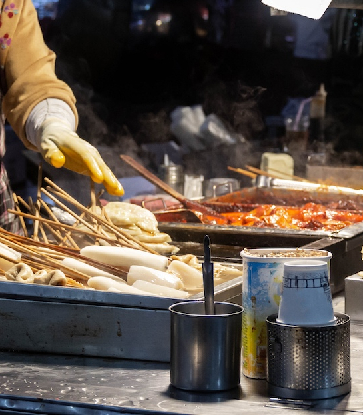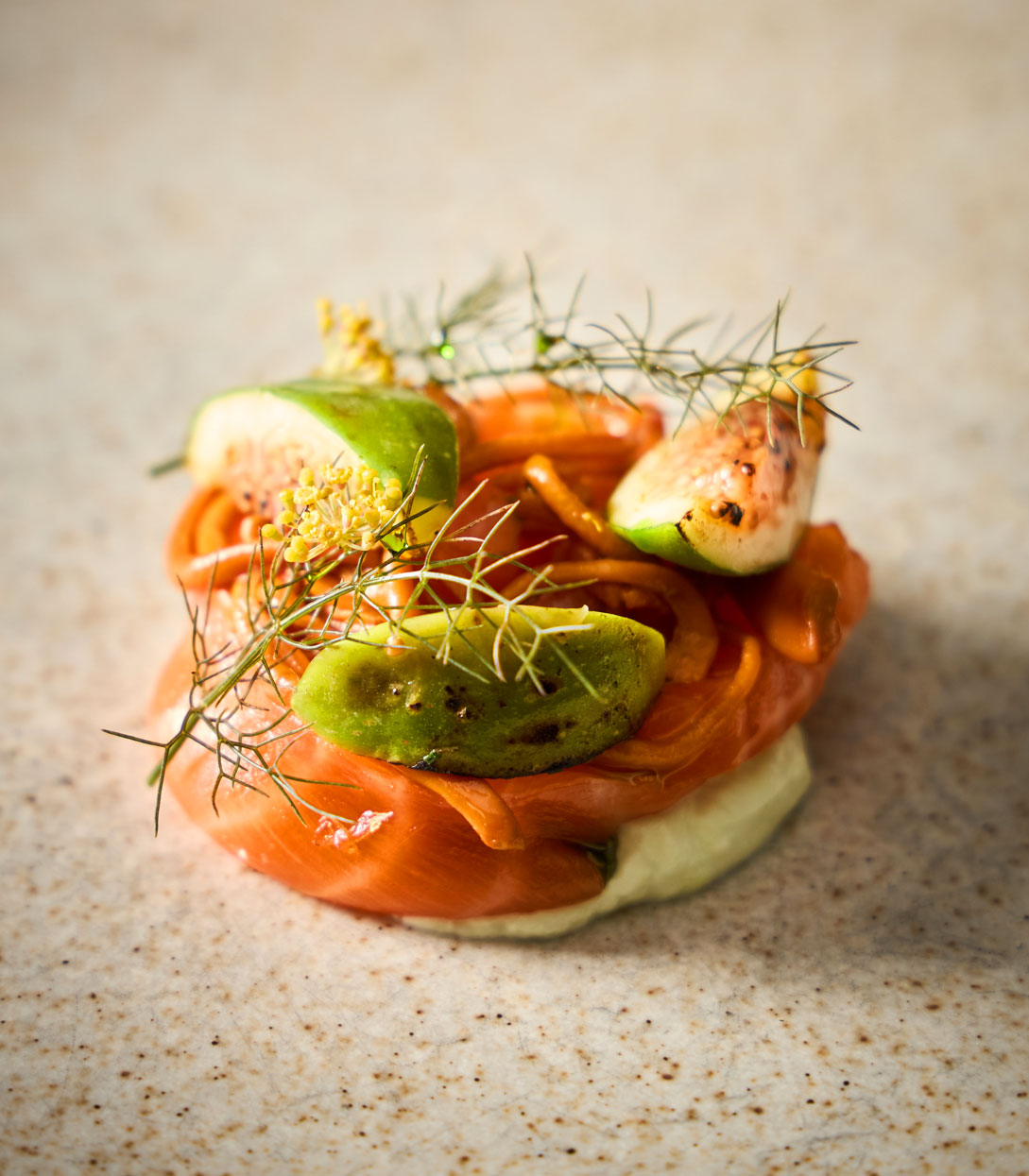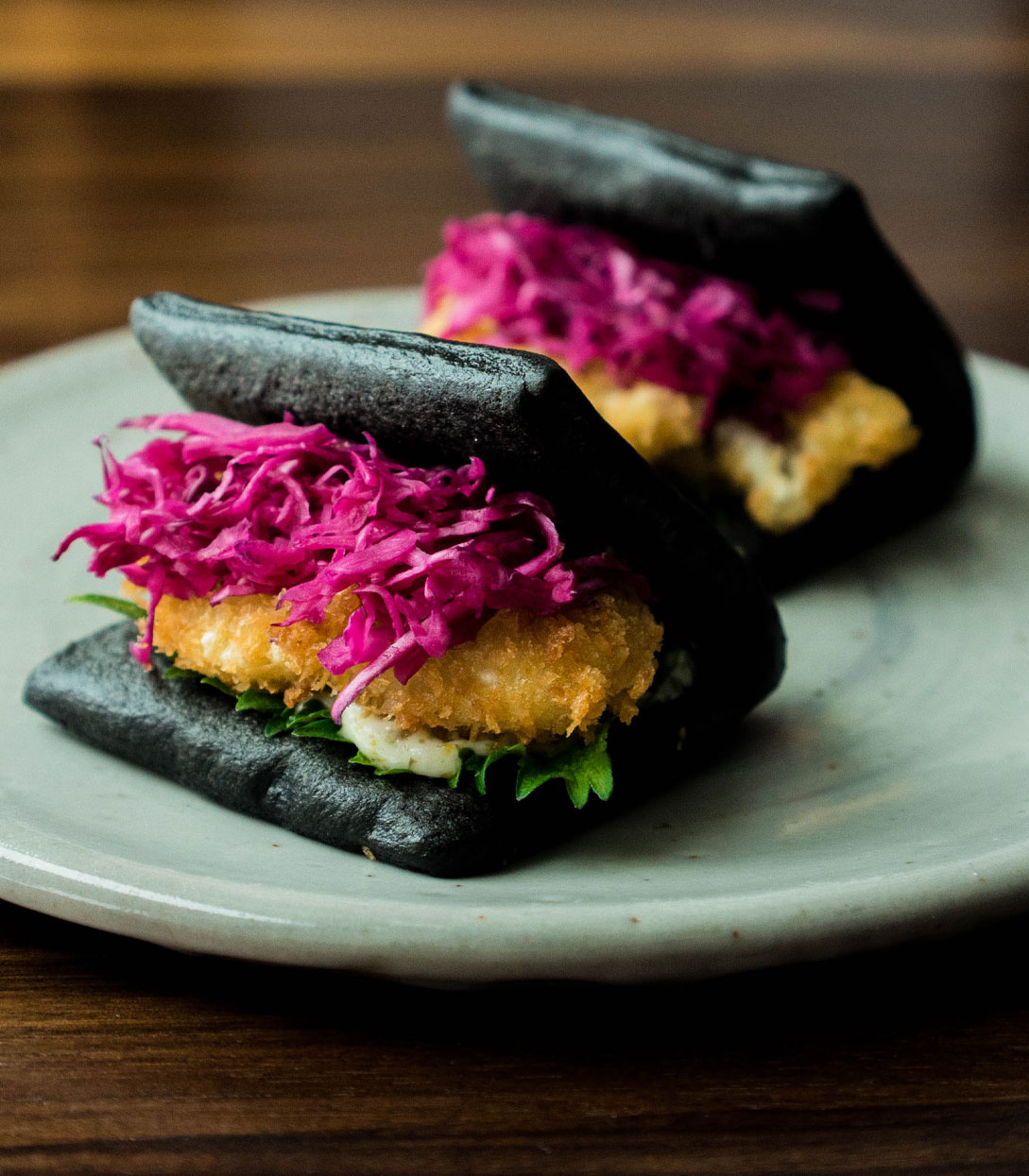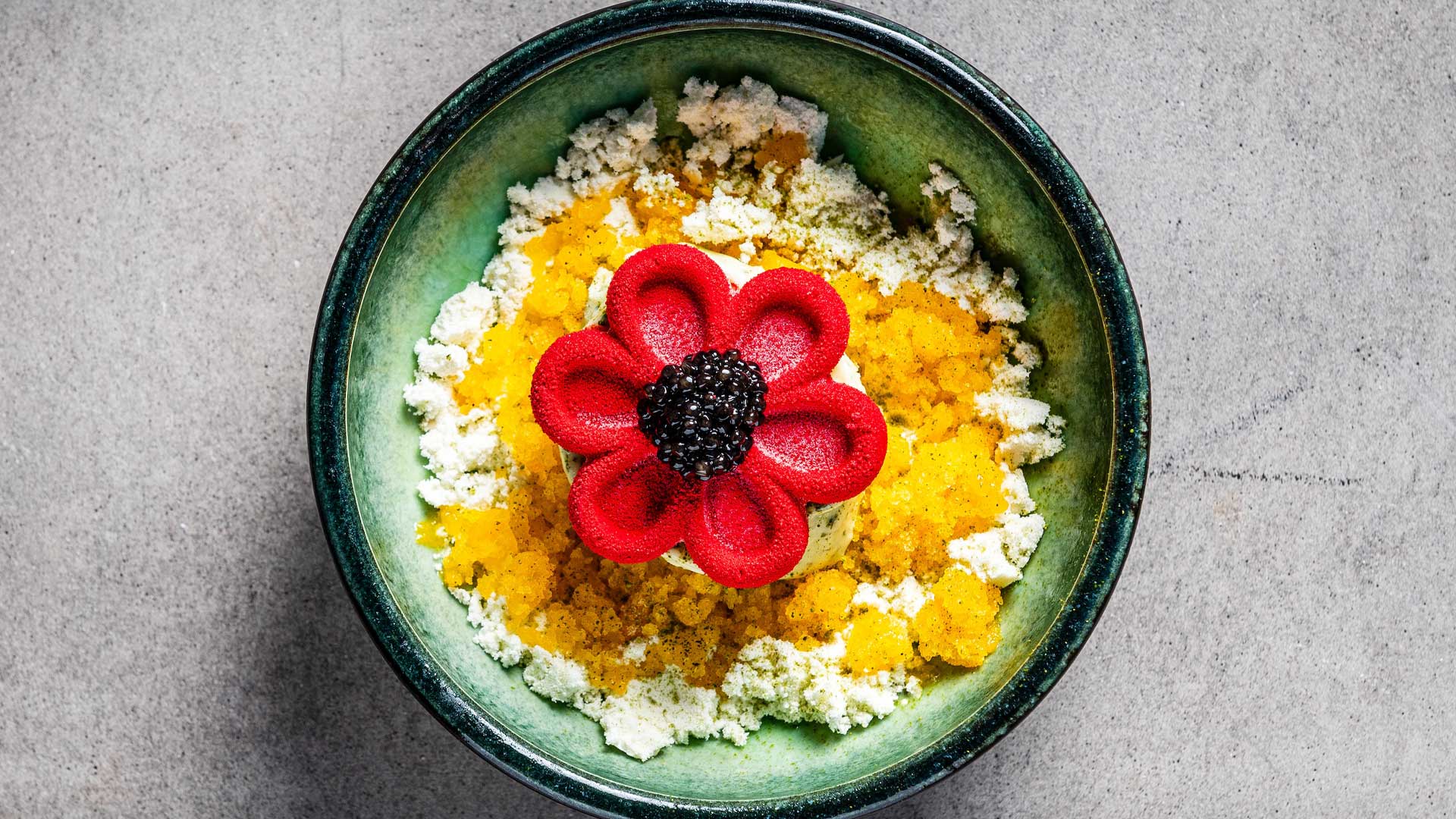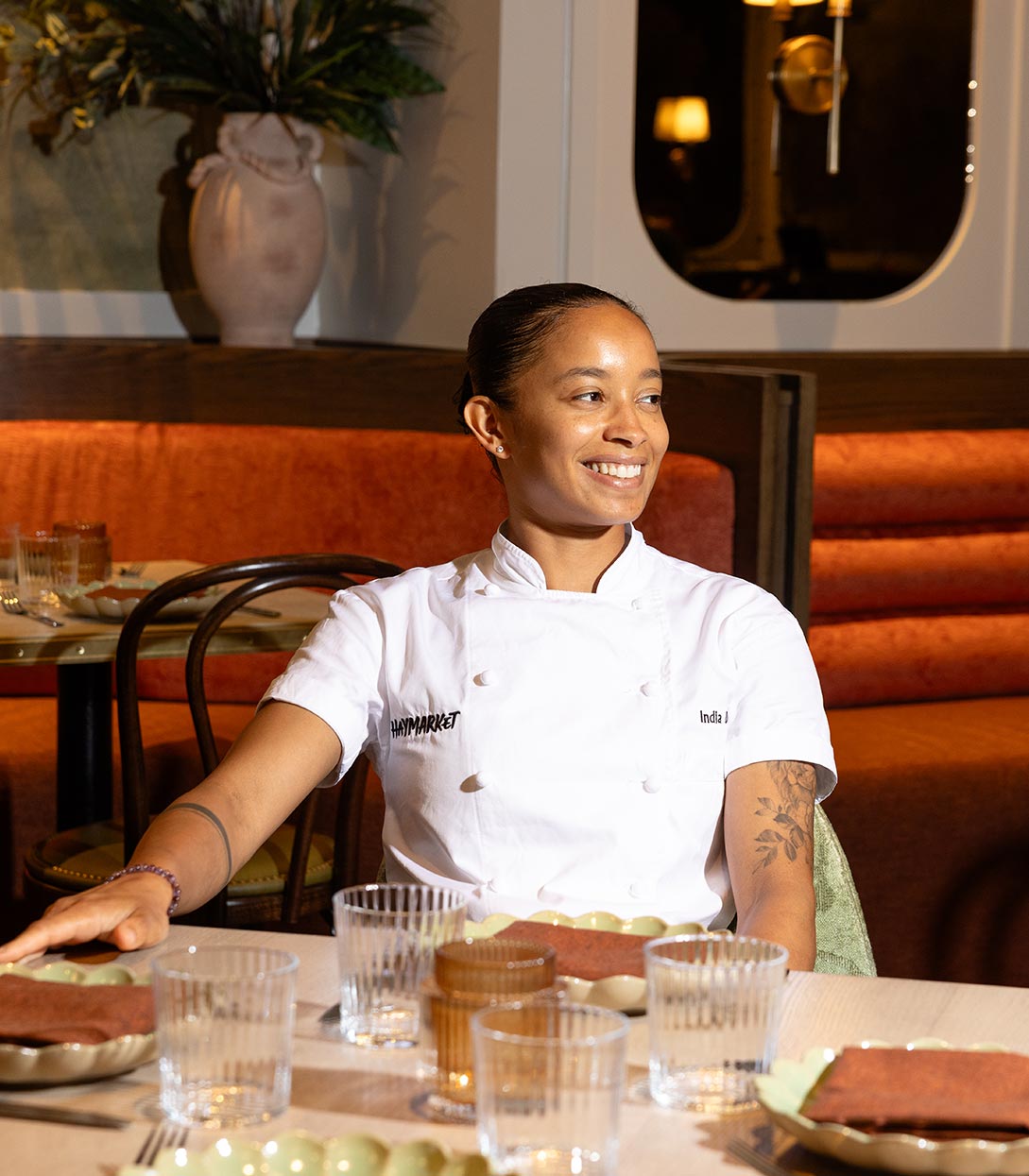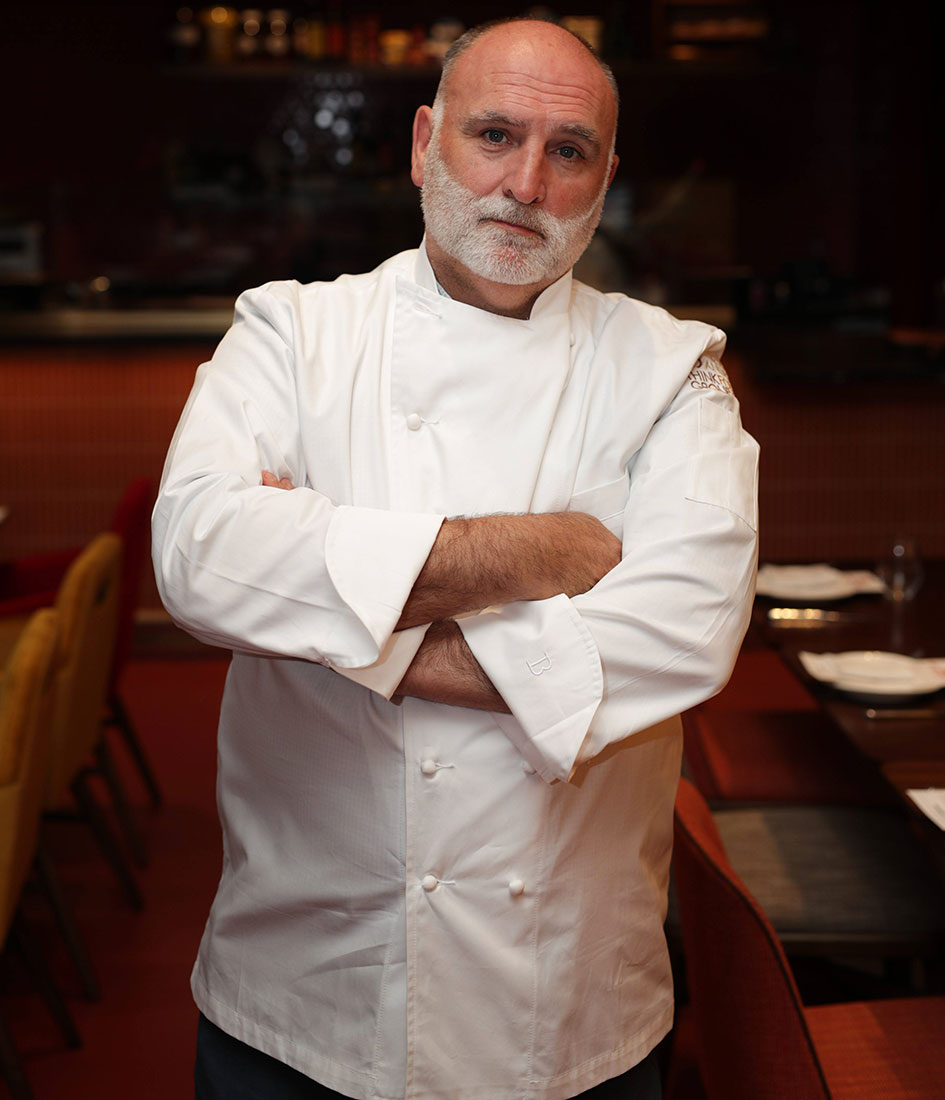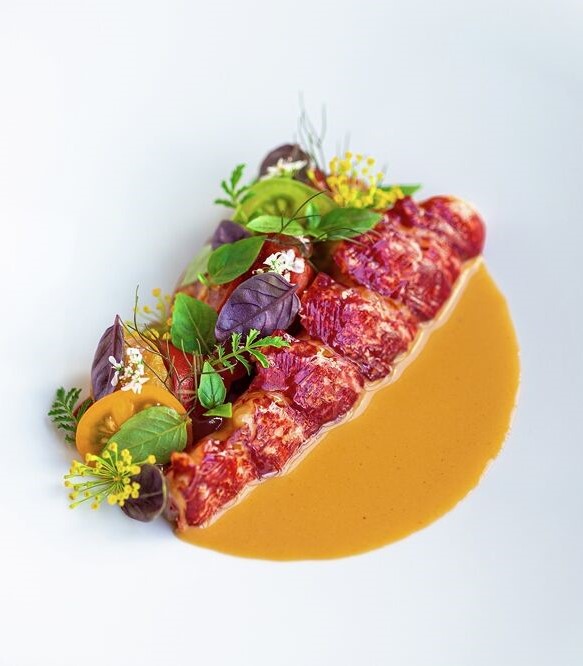The culinary world is constantly evolving and innovating. Three Star (and Green Star) SingleThread employs regenerative farming, while London's Silo became the world's first zero-waste haute spot. It’s clear that the sustainability movement is gaining much-needed traction in the culinary landscape, but more can be done. That's why MICHELIN Green Star spots lead the industry in championing sustainable gastronomy. However, there are plenty of points of interest across the globe without Green Stars but definitely with a green thumb. That's why below, we asked restaurants from around the world on how they're fighting (and cooking) for a better tomorrow.
Ration: Beverley – Wesley Barber, Jef Edwards, and Jordan Oetelaar
While the outside may look like a typical coffee shop, inside lies one of Toronto’s most delicious zero-waste restaurants. Offering a tasting menu focused on fermentation, foraging, and curing, diners get more than tasty dishes—they get to experience the raw, unedited story of life in Canada.
Initially a pop-up meant to explore the world of fermentation, Ration: Beverley took on a whole new life when the pandemic hit. “We had a bunch of our suppliers losing their minds about how much money and product they were going to lose,” explains executive chef/founder Jef Edwards. “It became a pantry box where we brought all of the supplies in.” The everyday items were easy, the at home safe delivery platform took care of that. But the uncommon products that weren’t easy to move, now that was more of a challenge.
“We really had to hammer down and figure out what we can do with all these vegetables that could potentially go bad,” Edwards says. “So we started using them to make prepared dishes that we would sell.” Little did they know, the team had stumbled upon a goldmine. Supply started to sell out, and before they knew it, the team couldn’t keep up with incoming demand. Combined with the lackluster recycling programs in Toronto, the team had to figure out a way to juggle between utilizing the increased supply that was coming through the door and a constantly changing menu. “It forced us to come up with creative ways to highlight what we have and when we have it,” adds Wesley Barber, co-founder of Ration: Beverley.
The solution? Creating depth of flavor out of food waste- or in other words, fermentation. From kosho (a Japanese condiment made from fresh chiles) and shoyu (Japanese style soy sauces made from fermented soybeans, wheat, salt and water) to lacto-fermentation (process where bacteria breaks down sugars in foods and form lactic acid) and garam (fermented fish sauce), the team developed a handful of different safeguards against food waste. “We don’t throw things out here,” Barber states.
Besides fermentation, the team also structured the tasting menu to connect ingredients throughout the entire dinner. “Something in your snacks course will show up in your pasta course, and then another byproduct from that will show up in the vegetable course, which then makes its way into the dessert,” Edwards explains. “You see an ingredient or profile transcend the entire menu, and in that way, you’re really connecting the themes throughout the entire dinner and showing how clever you can actually be with changing certain elements of an ingredient into all of these completely unique applications and still find a home.”
An example of that is the charred cabbage with smoked breadcrumbs, where leftover scraps are turned into sauerkraut and pasta filling. “It was my favorite,” describes Jordan Oetellar, a chef at Ration: Beverley. “You’d eat this now, but then you’ll see it again in the next dish, and it just keeps working itself in there.”
But the solution doesn’t stop in the kitchen. Byproducts like lemon and cantaloupe rinds from the kitchen find their way to the bar, and vic versa. “It’s a symbiotic relationship,” describes Oetellar. “From bartenders to cooks, everybody gets involved in it.
You might be wondering why a restaurant would go through the extra steps to be sustainable, especially since they “add hours to days and dollars to the expense line” as Edwards puts it. But for the team, the answer was simple.
“I want to have kids one day,” Barber tells me. “I want to make sure that we’ve got a place to raise our kids one day.”
And that’s undoubtedly what Ration: Beverley is. A place that is as much educational as it is a dining experience. A place where everyone from the service team, from front end to back of house is committed to the sustainability battle. A place where you’re taught about sustainability, zero waste, and how to weave practices into your daily life. A solution in a time full of problems.
Olmsted – Greg Baxtrom
One of Brooklyn’s hottest tables, Olmsted’s success is due in large part to chef/owner Greg Baxtrom’s concise and thoughtfully conceived menu. Add a backyard garden of vegetables and herbs directly going to the table coupled with Baxtrom’s fine dining background, and it’s no wonder that Olmsted is a local favorite.
Olmsted was created to be a neighborhood restaurant, a place where locals can come in for casual dinners or bigger celebrations. And that is undoubtedly what it is – the outdoor patio brings an intimate yet lively vibe, while the backyard garden infuses a sense of familiarity and belonging.
But it is also so much more than that. It is a restaurant that combats climate change and supports local farmers, all the while churning out delicious plates with seasonally farmed ingredients.
“I always wanted my first restaurant to have a major sustainability component,” Baxtrom explains. “It’s something that’s always been important to me, especially as a chef/restaurant owner—I hate how much waste restaurants produce, and I wanted to change that, starting with the kitchen.”
To make that change, Baxtrom had to minimize food waste. The first thing was making sure that what they were buying was in season and sourced locally, either through the backyard garden in Olmsted or from farmers at the Grand Army Greenmarket down the street. Olmsted classics like the Kale and Crab Rangoons (which also happens to be Baxtrom’s favorite dish from the menu), the Carrot Crêpes, and the Kohlrabi Fettuccine actually exist thanks to the produce grown right in the backyard. The restaurant also composts 24/7, raises quails for eggs, and gifts leftover pastries to guests.

The next was to adopt a tasting menu and make sure all ingredients were used as responsibly as possible— used lemons are grilled and transformed into a syrup re-used for cocktails, peels are dehydrated and used as coasters, and remaining water and ice from the night are used to water the garden.
“We’re always trying to be conscious of food waste and end up with as little trim or waste as possible,” Baxtrom says. “To do that, and still end up with a beautiful dish can be harder than it sounds—we’re constantly playing around with new methods of using our ingredients, but I enjoy that challenge.”
“It’s not necessarily the easiest route, but I hope restaurants consider the ways in which they can make their ingredients last,” Baxtrom adds. “It’s a few extra steps, but it makes a huge difference over time.”

Galit - Zach Engel
At One Star Galit in Chicago, acclaimed chef Zach Engel puts his modern spin on Middle Eastern cuisine. Here, sharing is caring—the warm and lively vibe and prix-fixe menu are proof of that. The best part? The food is served with a side of sustainability.
For Engel, sustainability is about supporting the community and using local ingredients. “Nothing against anyone who’s flying in fish from Japan, but that’s not a sustainable practice,” Engel says. "We need to have a stronger commitment to local farms and not take the easy route.”
To do that, Engel started to source fish from a sustainable salmon farmer in Wisconsin. Then it was learning the growing seasons in the Midwest from his sous' chef. Now it’s working with rural Chicago farms for produce. Engel recounts his initial conversation with Smit’s Farms, where he had to plead his case to farmers to grow Za’atar. “I told them, look you don’t know me, but I’m opening a restaurant, can you please grow this (Za’atar) for me, and I swear whatever you grow for the season, I will buy all of it.”
From drying it into their own in house Za’atar spice, infusing leftover stems with gins and different syrups to make martinis, and using it as a garnish on dishes to add flavor, Za’atar is now one of Galit’s most used ingredients. “It’s been four years of developing and trying not to waste anything,” Engel adds.
Another example of that relationship with local farmers is the Slagel Family Farm in Fairbury, Illinois. The farm had an abundance of stock in turkey and pastrami, and Engel knew they needed to help. Turkey meat is transformed into shawarma and pita, while the pastrami into a sandwich and salad. The pastrami is rubbed and cured with a traditional pastrami spice, smoked in a Carolina pit smoker for 8–10 hours, and then tossed in beef fat caesar dressing (which is sourced sustainably from leftover beef that would otherwise be thrown away). “It’s super punchy, decadent and creamy,” describes Engel. “Every time I taste it, my eyes roll to the back of my head."
Sourcing from local farmers and fisherman may be sustainable, but it comes with its set of challenges. “There are certainly compromises that I have to make being in Chicago in the winter, like not getting lettuces from farmers in January,” Engel explains. To combat this, the team at Galit shifts gears during the summer months, preparing for the bone chilling winds of the Chicago winter. “We buy everything we can, and then it’s our job to cook, preserve, ferment, dehydrate, process and store these things.”
The sustainability battle in Chicago is certainly a hard (and chilly) one, but Engel doesn’t see it that way. “As a chef, it’s a problem that I’m almost destined to continually solve,” Engel exclaims. “I don’t really feel like it’s a burden, it’s something that I want to pursue. If you’re creative enough to do something with beef from Australia, you probably can do the same thing with something else close by.”
The future of sustainability, Engel argues, resides in focusing on our carbon footprint. “We’re seeing a huge change in how people operate their businesses, we need to understand how destructive we are as consumers without even knowing it,” Engel continues. “Buying local, learning preservation techniques, composting and recycling, these are all things we need to be doing to be better.”
“We need to be conscientious of everything in every way,” Engel adds. “We’re in this mode that we’re just acting like it doesn’t matter.” It’s clear that the fight for sustainability isn’t a walk in the park. But to have a park to walk in, it is imperative that we commit to the fight. It’s time to start acting like it matters, because it does. These restaurants show that it’s possible, no matter the odds or challenges. And that’s the MICHELIN way.
Hero image: Evan Sung/Olmsted





